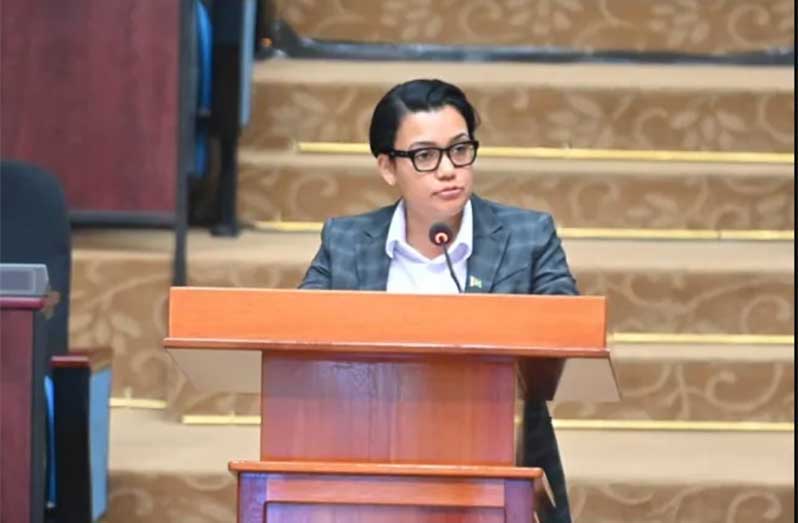– Couples can now divorce on grounds of irreconcilable differences
– As Matrimonial Causes Amendment Act passed
THE National Assembly has passed the Matrimonial Causes (Amendment) Bill 2024, marking a significant shift in family law. This landmark legislation addresses spousal maintenance and divorce, allowing men to seek spousal support and enabling couples to divorce on the grounds of irreconcilable differences.
The bill which was laid in the house some weeks ago, was passed in the assembly following the second and third readings at the 84th sitting of the 12th parliament.
During presentation of the bill for its second reading, Attorney General and Minister of Legal Affairs, Anil Nandlall, S.C., stated that in the previous act, the Matrimonial Causes Act Cap. 45:02, there are several provisions in which there is not equal treatment extended to both husband and wife and as such, they sought to address these issues.
The issue of the lack of equal treatment, the AG said, came to the fore when a case emerged whereby a divorced man contested the act after being barred from seeking spousal maintenance from his ex-wife.
Nandlall told the house that he was named a respondent in that case and conceded that the act indeed was offensive to the different provisions of the constitution that speak to equality of treatment and discrimination.
“We gave an undertaking that we will come to the parliament to correct that unconstitutionality,” he said.
Clause 10 of the bill amends Section 14 of the principal act by substituting a new Section 14. According to the explanatory memorandum of the bill, the effect of this amendment will provide for either the husband or wife to receive maintenance or alimony post-divorce.
Further to this, the clause also sets out the factors which the court will consider when an order for maintenance is to be made.
Additionally, the Attorney General said that the amendments to the act seek to ratify the “fault-based system” contained in the previous act.

He indicated that with that system, one would have to prove that the other side committed or is guilty of one of the wrongs that constitute the grounds on which a divorce could be granted and if that is not established, then the petition for divorce fails.
The correction of this aspect is catered for in clause nine of the bill which amends section nine of the principal act and makes provisions for the dissolution of marriage on the grounds of irreconcilable differences, which has caused the irremediable breakdown of marriage.
“A petitioner who is relying on this ground must prove to the satisfaction of the court, that the parties to the marriage have been separated and living apart for a continuous period of at least six months immediately preceding the presentation of the petition,” the explanatory memorandum of the bill stated.
With that, Nandlall said that they had tried some years ago to amend this section of the law but there was resistance from sections of society; however, this time around, when consultations were held those segments of the population, he added, have now changed their view.
Further to this, he disclosed that the practice of the use of “irreconcilable differences” for the dissolution of marriages has been a common practice for some years now in many other Commonwealth and Caribbean countries.
Meanwhile, rising to voice her support for the bill was Minister within the Ministry of Housing and Water, Susan Rodrigues, who indicated that the passage of the bill marks a significant day as Guyana inches closer to achieving gender parity.
“Today with the passage of these amendments, there will be a victory for women who will benefit the most from a no-fault divorce with the inclusion of irreconcilable differences as a ground for divorce and a victory for men in the case of payment of alimony and a giant step towards gender equality,” Rodrigues expressed.
While this has been added to the legislation, Rodrigues said that this does not propose the removal of any of the existing grounds for divorce which require proof of fault.
Meanwhile, opposition member Haimraj Rajkumar, during his presentation on the bill, voiced his outright support for the significant amendments to the legislation. He too indicated that the proposed amendments seek to remove the discriminatory provisions in relation to divorce proceedings.
Additionally, giving support to the bill was opposition member Geeta Chandan-Edmond, who said that these amendments amount to a monumental development.
She said, “We are in the midst of completing a process of law-making that will place matrimonial engagements under a new paradigm; it is not lost on me what this legislative process entails, for this reason, I want to be very pellucid: where there is law that there is a conflict with fundamental rights of any groups of anyone, the law must be modified.”
According to Section 14 of the Principal Act, on a decree for dissolution of marriage, the court may order that a husband must pay maintenance or alimony to the wife.
This provision, according to the bill’s explanatory memorandum, was held by the High Court to be discriminatory based on the grounds of sex and gender and did not provide that a wife may be ordered to pay maintenance or alimony to the husband.
That was found to be in violation of Articles 149 and 149D of Guyana’s constitution, which speaks to the protection from discrimination on several grounds including sex, gender, and equality among others.
As such, the bill which enjoyed the support of the government and opposition members was read for a third time and passed in the National Assembly.



.jpg)










